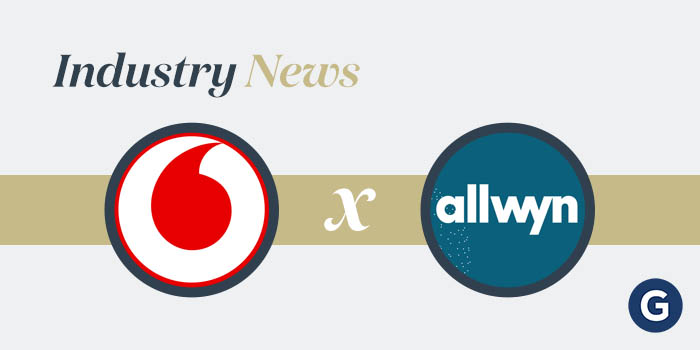Affordability Checks Evidence Might Be a Thing after UKGC Consultation

With over 13,000 pitching in the UKGC’s public consultation on affordability checks, racing leaders fear that the measure may bleed the industry out of revenue and imperil it financially.
UKGC’s Submission Evidence to Upend the Gambling Industry
The Gambling Commission held a consultation on affordability checks which closed last week. Their call for evidence resulted in more than 13,000 responders sending in large amounts of evidence and submissions.
A spokesperson of the Gambling Commission responded by saying that they will keep those responses into account when they decide on what to do next with regards to affordability checks.
The aftermath of this event raises some issues however and the BHA, Racecourse Association and Horsemen’s Group, has responded with concerns about gamblers’ privacy as well as the impact on online gambling if those new legislations are set. The BHA is joining similar calls from another organization, the Horseracing Bettors Forum (HBF).
Several industry experts, including Nevin Truesdale and Martin Cruddace are predicting a worst-case scenario in which gambling firms will lose more than $100 million a year if those Affordability Checks are implemented. This number is higher than the previously $80 million reported by the UK Gambling Commission.
Conservative MP Laurence Robertson estimated that betting companies receive around $350 million per year from such contributions and any number lower than that would result in the financial ruin of existing companies and a wave of people flooding the black market.
Robertson stated that the commission and the gambling industry should work together to establish a working and risk-free plan to simultaneously help problem gamblers while avoiding financial losses for the industry. He also talked about the necessity for a solid framework that would safeguard consumers against leaving the regulated gambling market for offshore websites instead.
Gambling Ombudsman to look over the area
Social Market Foundation in return responded to those concerns by stating that the $100 a month ceiling should not be taken as concrete number and that it should work like an “Invisible Hand” that is confined to remote gambling alone.
SMF also stated that individual privacy and customer freedom will not be affected because gambling companies already have a large amount of data that can be used to help problem gamblers.
“In our report, we remained conscious of the debate about freedom in the market and the so-called ‘nanny state’. Once the threshold is crossed, we argue that enhanced customer due diligence checks should be conducted based on the data which is already held and the processes which are already carried out by individual operators. “
Social Market Foundation
A gambling ombudsman should be created, suggested SMF. As part of their remit, the ombudsman would receive customer data and overlook the whole process, making informed decisions about future regulation.
Luke is a media graduate who is looking to build upon his experiences from his strong love of sports betting and casino games which started during his first year of college. His fresh mindset always brings new content ideas to the team and his editorial skills will continue to grow with the help of the upper management team at GamblingNews.com.















1 Comment
It is not just the horse racing industry that will be disastrously impacted by affordability checks. All sports betting will be affected, since a huge proportion of bettors will be put off from betting by having to go through intrusive affordability checks. The loss of betting revenue in football, for example, will be on another scale altogether – and the impact on the sport itself will be similarly affected, as in horse racing. This is because with the loss of giant turnover and revenue numbers, the sponsorship of football teams by betting companies will decline – with catastrophic consequences for the football leagues.
Of course, an end to the sponsorship of football by betting companies is what the ‘abolitionist’ groups like the All Party Parliament Group on gambling harm, want – the APPG called for this in their report published last year (along with other drastic measures such as huge stake restrictions and the abolishment of the Gambling Commission). The Social Market Foundation report published late last year – written with a similar ‘abolitionist’ agenda – explicitly backed up the conclusions of the APPG in their report.
Yet for the sports industries to survive, betting revenues and income are needed by the bodies and organisations that provide the entertainment – the racing industry, and the football clubs and industry. The only path forward is to seek to protect problem gamblers without impacting on the rights of the vast majority of bettors who enjoy betting and do so safely. The betting companies, especially online, have a vast amount of data that can be better used to assist those with betting problems – without the introduction of problematic affordability checks, or transgressing individuals’ data protection rights; and without the introduction of the totally excessive and radical deposit limits that the Social Market Foundation proposed, which to some extent go together with the kinds of extreme affordability check being mooted.
Incidentally, the Social Market Foundation is the *only* outfit to propose radical deposit limits. Previously, this was not really being considered by other organisations – from the Gambling Commission to the House of Lords in their report on Gambling Harms last summer. The Gambling Commission has picked up on the SMF idea and gone overboard with it. Compare countries across Europe and the world (eg the US), nearly all of which are more liberal than the Social Market Foundation suggests the UK should be. (Even in a place like Germany, with a more ambivalent attitude to betting than the UK has had, they are bringing in deposit limits of 1,000/ month – 10x higher than what the SMF has suggested. The idea of £100/month limits is massively, extremist-ly lower than about anywhere else – compare the US which is currently liberalising its betting industries, or for example Spain or Italy where there aren’t such limits, as in many other European countries. Leaving aside any of the other points above, where has the SMF dreamt up its ‘radical deposit limits’ idea from, that is so out of synch with places elsewhere? It is absurd – and should be mentioned that the SMF is a tiny body and the report was authored by just about a single writer.)
Unless people push back on the appropriateness and suitability of the GC’s ideas – not just through survey responses but in the media, there is the danger they will persisit.